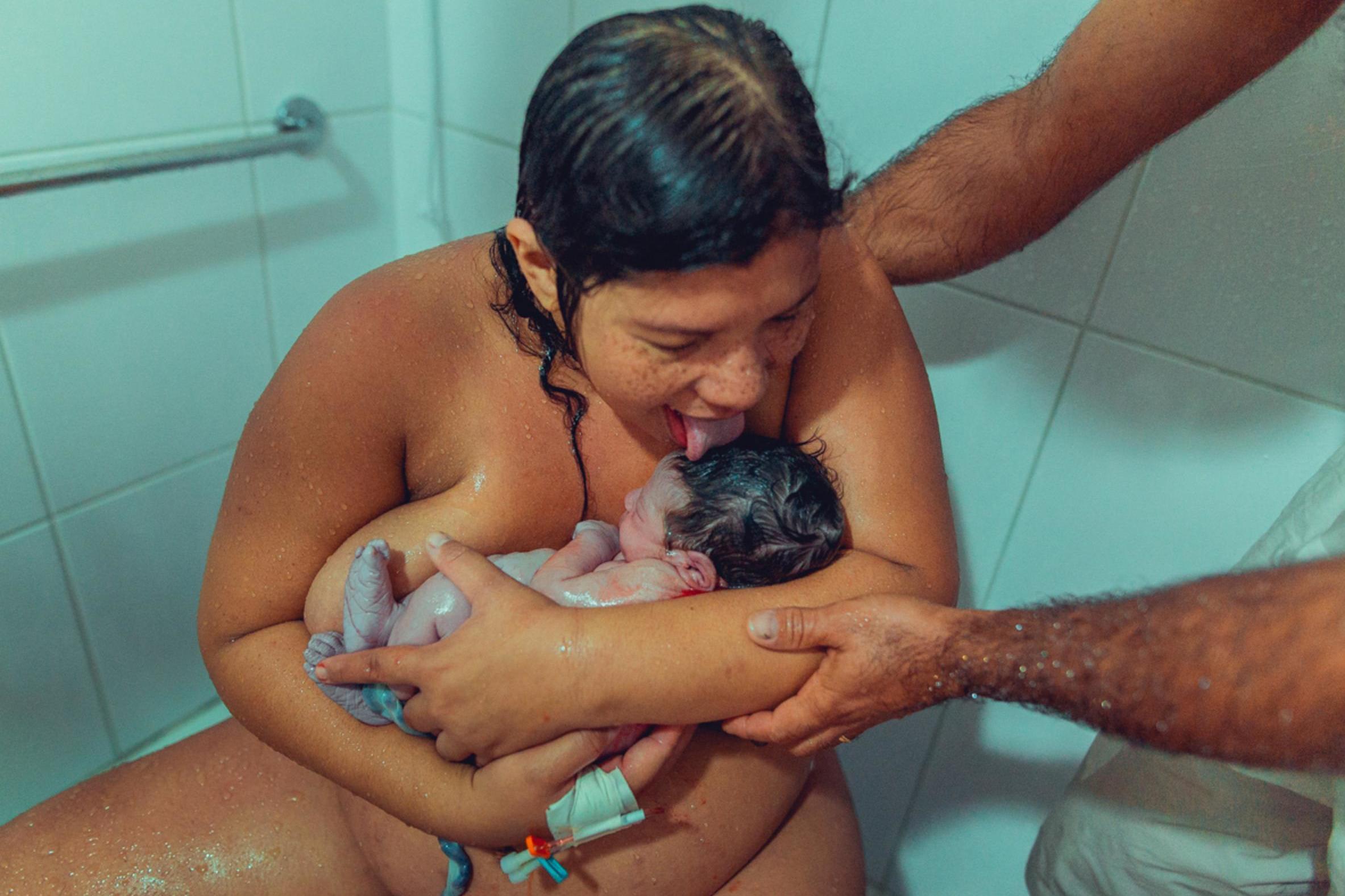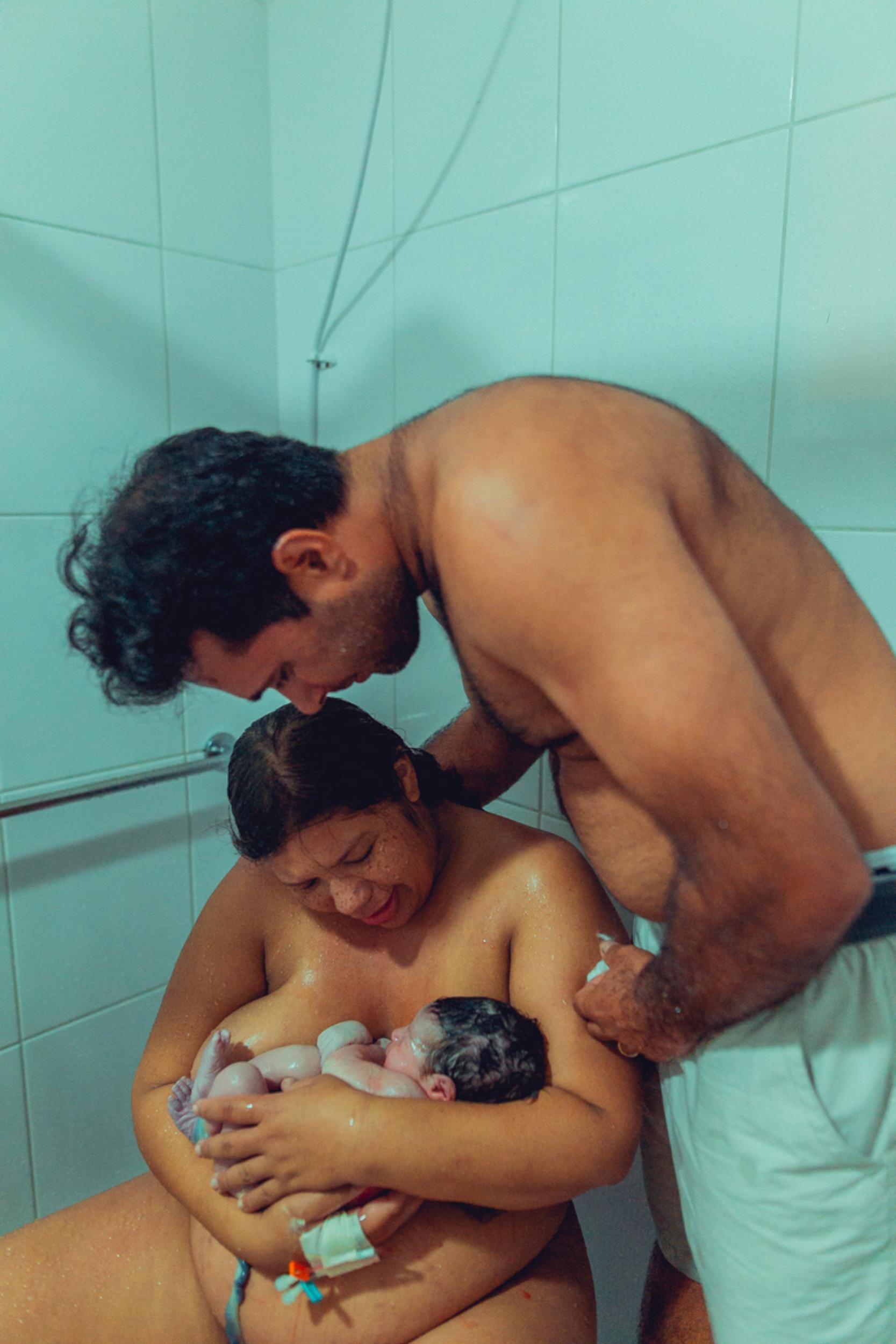Photograph of new mother licking her newborn causes online debate
Many other mammals lick their newborns

Your support helps us to tell the story
From reproductive rights to climate change to Big Tech, The Independent is on the ground when the story is developing. Whether it's investigating the financials of Elon Musk's pro-Trump PAC or producing our latest documentary, 'The A Word', which shines a light on the American women fighting for reproductive rights, we know how important it is to parse out the facts from the messaging.
At such a critical moment in US history, we need reporters on the ground. Your donation allows us to keep sending journalists to speak to both sides of the story.
The Independent is trusted by Americans across the entire political spectrum. And unlike many other quality news outlets, we choose not to lock Americans out of our reporting and analysis with paywalls. We believe quality journalism should be available to everyone, paid for by those who can afford it.
Your support makes all the difference.A photograph of new mother licking her newborn’s head has gone viral and raised questions about why humans don’t usually lick their infants, whether it is safe to do so, and what the potential benefits could be.
In the tender moment captured by birth photographer Ludy Siqueira of Senhoritas Fotografia, new mum Cátia- from Salvador, Brazil, licks her son Kirone’s head after hours of labour.
While it may be uncommon for human mothers to clean their newborn after giving birth, it is perfectly natural - and normal in some cultures.
And although most women don’t lick their newborns clean, the desire to lick the babies stems from an instinct most mammals have.
Birthing expert and educator Flor Cruz explained to Mums Grapevine: “Mammals are known to lick and clean their young immediately upon birth.”
In the wild, the tongue-cleaning is done for a few reasons - including to ward off potential predators by removing the new baby scent, and to assimilate the baby into its new surroundings.

The desire to bond with the newborn also plays a significant part in the urge to lick it - and it may be beneficial to the baby.
According to neuroscientist Alex Korb, the habit of licking newborns is common among rats, and numerous studies have shown a benefit in being raised by “high-lickers,” or rat mothers that frequently lick their young.
“It turns out that being licked by the mother releases a neurotransmitter called oxytocin, which reinforces the relationship between the mother and the baby, reduces stress, and changes which part of the DNA gets read,” he explained.
Additionally, some women believe that licking a newborn allows them to take in nutrients from the afterbirth.

As a growing number of women choose more natural births, many are also turning to homeopathic after-birth options, such as consuming the placenta.
However, while licking a baby may be relatively unharmful, scientists and doctors warn against eating the placenta.
While there is no scientific reason for humans to lick their newborns, as "There hasn't been [evolutionary] selection for licking your offspring. We can clean without licking," according to Lee Dugatkin, an evolutionary biologist at the University of Louisville and author of "How to Tame a Fox and Build a Dog," new mothers may just feel an urge.
In response to our enquiries about licking a newborn, one obstetrician-gynaecologist told The Independent: "Ugh, why. Just sounds gross."
Join our commenting forum
Join thought-provoking conversations, follow other Independent readers and see their replies
Comments